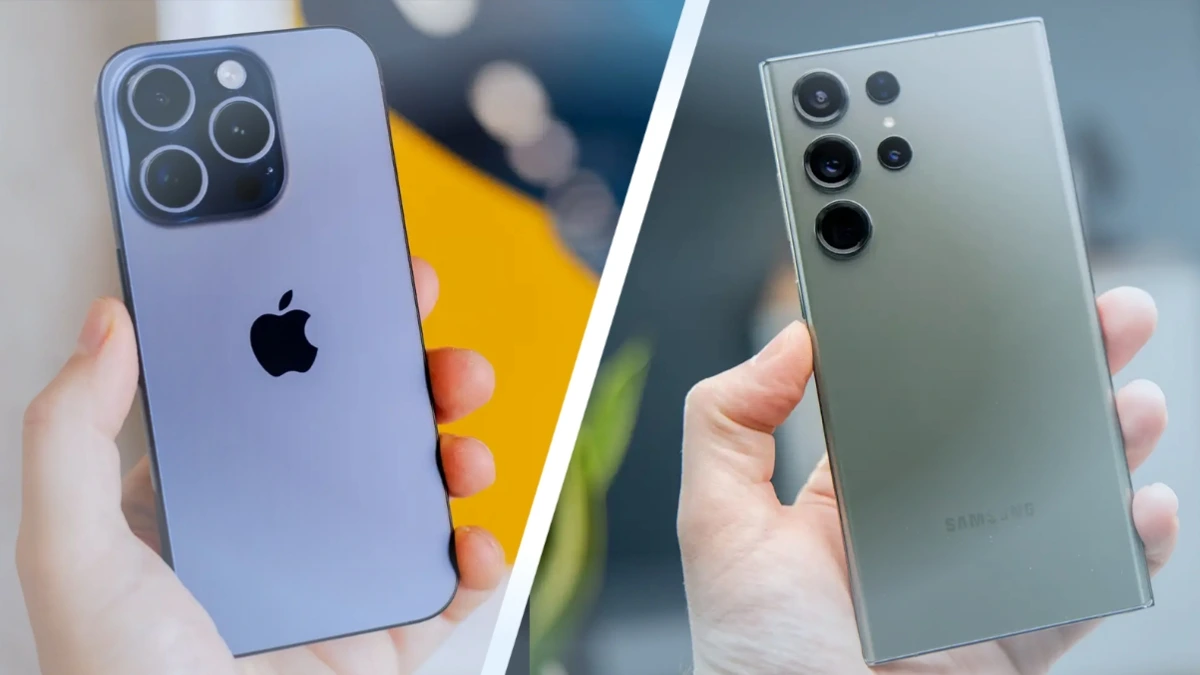LONDON — Nearly 30 million people in the United Kingdom who purchased Apple or Samsung smartphones between 2015 and 2024 could be entitled to an average payout of about £17 if consumer group Which? succeeds in its case against US chipmaker Qualcomm.
The case, which began Monday in the Competition Appeal Tribunal in London, alleges that Qualcomm engaged in anti competitive practices that inflated smartphone prices for consumers.
Which? argues that Qualcomm leveraged its dominant position in the mobile chipset market to force Apple and Samsung to pay higher licensing fees for essential components. These additional costs, the group claims, were ultimately passed on to consumers.
The lawsuit targets smartphones purchased between October 1, 2015, and January 9, 2024, and seeks £480 million in damages.
If successful, the payout would be distributed among an estimated 29 million affected consumers in the UK, averaging roughly £17 per person.
Qualcomm, one of the world’s largest smartphone chip producers, has denied the allegations, calling the case “without merit.”
The trial is expected to last five weeks and will examine whether Qualcomm held market power and, if so, whether it abused that dominance.
Legal experts say the case could have far reaching consequences for competition law and the tech industry.
“Should Which? prevail, it could reshape how patent licensing and royalty agreements are scrutinized in the United Kingdom,” said Dr. Emily Carter, a competition law specialist at Oxford University.
Companies may face greater accountability for practices that appear to inflate consumer prices. However, analysts caution that the defense could be strong.
Qualcomm has long maintained that its licensing fees are fair and reflect the value of its technology, said Simon Patel, a technology industry analyst in London. “Proving anti competitive behavior in court can be complex and time consuming.”
If the tribunal rules in favor of Which?, the total £480 million payout would be shared among millions of Apple and Samsung customers.
While the £17 figure may appear modest per person, consumer advocates say it represents an important recognition of financial harm caused by alleged corporate practices.
The amount may seem small, but the principle is significant, said Anabel Hoult, chief executive of Which?. “It demonstrates how consumers, supported by advocacy groups, can hold major companies accountable for abusing market power.”
Responses among smartphone owners have been varied. John Smith, a London resident who owns an iPhone, said, “If this lawsuit succeeds, it will show that big companies can’t just push costs onto ordinary consumers without consequences.”
Meanwhile, Sarah Lee, a Samsung Galaxy user from Manchester, noted, “Even though the payout isn’t huge, it is encouraging to see legal action that could prevent similar practices in the future.”
Other consumers expressed skepticism over the process. “I bought my phone years ago. I’m not sure if pursuing £17 is worth the hassle, but it’s good that someone is trying,” said Michael Johnson, a Cardiff resident.
This case comes amid growing scrutiny of tech companies’ business practices worldwide. Similar cases against Qualcomm are ongoing in Canada, and the company has faced prior antitrust fines in Europe.
In 2017, the US Federal Trade Commission sued Qualcomm over licensing practices, but the case was dismissed in 2020.
Global regulators are increasingly examining how large tech firms manage intellectual property and pricing, said Dr. Carter.
This UK case could influence legal standards in other jurisdictions and encourage more consumers to challenge unfair pricing.
Should Which? succeed, the ruling may prompt other companies in the smartphone and technology sectors to reassess their licensing and royalty structures. Conversely, a ruling in Qualcomm’s favor could reinforce existing practices and deter similar claims.
Legal analysts also note that the tribunal’s decision could set a precedent for how consumer harm is calculated and distributed in cases involving complex technology licensing agreements.
As the trial unfolds over the coming weeks, the outcome will be closely watched by consumers, legal experts, and the technology industry alike.
The case highlights ongoing concerns about corporate market power and its impact on consumer pricing, and its final ruling may have lasting implications for how major tech firms operate in the UK and beyond.
